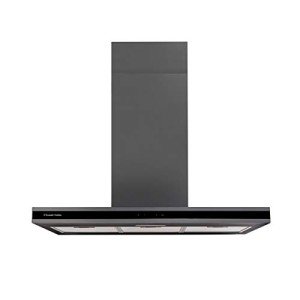The Reasons Why Island Extractor Hood Is Everyone's Desire In 2024
페이지 정보

본문
Understanding Island Extractor Hoods: A Comprehensive Guide
In contemporary cooking areas, the function of an extractor hood, especially the island extractor hood, can not be overstated. These appliances not only boost the looks of a kitchen but likewise play a critical role in keeping air quality. In this post, we will explore what island extractors are, their advantages, types, installation factors to consider, maintenance suggestions, and respond to some regularly asked concerns to help home cooks and homeowners in making notified decisions.
What is an Island Extractor Hood?
An island extractor hood, likewise known as an island range cooker island hood, is a kind of ventilation system that is suspended above a kitchen island cooktop, where cooking occurs. Unlike traditional wall-mounted hoods, which are attached to walls, island hoods hang from the ceiling, supplying unblocked views and guaranteeing efficient ventilation for all types of cooking activities.

Benefits of Island Extractor Hoods
Island extractor hoods offer a multitude of advantages:
- Enhanced Air Quality: They effectively eliminate smoke, steam, and cooking odors, promoting a much healthier kitchen island hood environment.
- Aesthetic Appeal: Available in different styles and finishes, island hoods can function as a stunning focal point in open-concept cooking areas.
- Flexibility: Many models include flexible ventilation alternatives, catering to both ducted and ductless setups.
- Sound Reduction: Advanced technology in modern extractor hoods often lessens functional noise, permitting an enjoyable cooking experience.
- Lighting: Many island hoods are equipped with integrated lights that illuminate the cooking area, boosting visibility during meal preparation.
Kinds Of Island Extractor Hoods
When choosing an island extractor hood, you will encounter a number of types. Here's a brief overview:
| Type | Description |
|---|---|
| Ducted | Ventilation system that needs ductwork to carry air outside your house. |
| Ductless | Uses filters to clean up the air before recirculating it back into the kitchen extractor hood island; ideal for homes. |
| Convertible | Can operate as both ducted and ductless, supplying flexibility based upon the kitchen design. |
| Integrated | Built directly into kitchen cabinetry or lighting, cooker island providing a streamlined, unobtrusive design. |
| Wall-mounted | Although not conventional island cooker hoods hoods, some wall-mounted hoods can be installed in such a way that serves kitchen islands. |
Setup Considerations
When installing an cooker island (read full article) extractor hood, there are several important factors to think about:
- Height: The hood ought to be installed at a height of 28 to 30 inches above the cooktop to effectively catch smoke and smells.
- Ventilation: Ensure appropriate ducting is readily available if selecting a ducted design, especially in homes with intricate designs.
- Air flow Capacity: Choose a hood with adequate CFM (cubic feet per minute) ranking to fit the cooking home appliance. As a guideline of thumb, multiply the BTUs of your cooktop by 1.5 to identify the needed CFM.
- Power Supply: Verify that electrical wiring meets the hood's operational requirements. Seek advice from a professional if modification is needed.
Upkeep Tips for Island Extractor Hoods
Correct upkeep ensures the longevity and effectiveness of your island extractor hood. Follow these ideas:
- Regular Cleaning: Clean the outside surfaces and the grease filters month-to-month. Many filters can be washed in warm, soapy water.
- Check Light Fixtures: Inspect and change bulbs as required to guarantee the cooking location is well-lit.
- Check for Duct Blockages: If using a ducted system, periodically check ducts for clogs to guarantee optimum airflow.
- Screen Noise Levels: If your hood begins to make uncommon noises, check for loose parts or debris within the system.
- Arrange Professional Maintenance: Consider having a professional examine and service your hood annually to address any potential issues.
FAQs
What is the ideal CFM for an island extractor hood?
The perfect CFM depends upon your cooktop's BTU. For a lot of home cooking, a variety of 600 to 1200 CFM is recommended, depending on the strength of your cooking habits.
Can I set up an island extractor hood myself?
While DIY setup is possible for those with experience, having an expert install your island hood is advisable to guarantee optimum functionality and security.
Are ductless island extractor hoods reliable?
Ductless hoods can be reliable in removing smoke and smells when geared up with premium filters, but they might not be as effective as ducted variations in aerating hot air.
How typically should I replace the filters?
For ductless models, it is suggested to replace the filters every 6 months to a year, depending upon usage. Constantly refer to the producer's guidelines for specifics.
island cooker hoods extractor hoods raise both the functionality and aesthetic appeal of modern-day kitchens. With numerous types, installation options, and maintenance ideas, property owners can find the perfect solution to fit their cooking requirements and design choices. By buying a quality island extractor hood, one not only boosts their cooking environment but likewise promotes a healthier home. As you navigate options, Cooker Island keep in mind to consider your kitchen design and cooking routines to select a hood that perfectly suits your culinary lifestyle.
- 이전글10 Sites To Help You Be A Pro In Railroad Settlement Aplastic Anemia 25.05.19
- 다음글Daycare Near Me By State Experiment We can All Be taught From 25.05.19
댓글목록
등록된 댓글이 없습니다.



